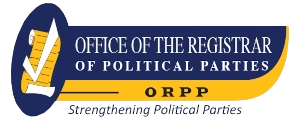Corporate Affairs
Lion Place Nairobi, Kenya; March,17, 2020.
Public institutions have been urged to deliberately reduce impediments of access to government procurement opportunities under the preserved and reserved category. It has been noted that despite progressive constitutional and enabling legislation that enable access to the groups, challenges still exists to the full realization of the provisions.
Speaking during a sensitization of ORPP management on the Public Procurement on Asset Disposal Act (PPADA) on the 15 th March in Naivasha, Mr Allan Muturi a Consultant with Kenya Institute of Supplies Management (KISM) urged the public institutions to go the extra mile beyond the legally prescribed 30% preservation/reservation threshold and put in place administrative enabling mechanism to attain the tenet. “As a long serving practitioner I can tell you that the target on this provision, majority of which are youth have had serious challenges that the PPADA, 2015 intended to address“, Mr. Muturi said Adding that public entities should institute mechanisms geared towards support of the disadvantaged persons seeking
government procurement opportunities to attain optimal economic empowerment as was intended” He further advised on mapping out according the category opportunities in the best prioritized manner.
On perceived ill practices in procurement, Muturi noted strict fidelity to the values and principles of governance as enshrined in the Constitution of Kenya, 2010. “To me if we adhere with the values and principles in our Constitution by all involved in the public procurement processes, we can undertake procurement above board”,
“To me if all decision makers in public procurement process adhere to the values and principles in our Constitution, we can undertake procurement more efficiently and effectively ” he advised.
Pursuant to detailed relationship among internal departments and units within an organization as outlined in PPADA, he called on ORPP to enhance departmental collaboration to ensure seamless procurement processes “For the entire procurement cycle to happen, there should be clear-cut functional inter-linkages to the procurement department and support to the procurement department as much as possible”, he noted.
The Office was called upon to ensure there are checks and balance as well as support to the Accounting Officer (the Registrar of Political Parties) to enable her deliver the steering responsibility bestowed in law. Among the roles of the accounting officer is to oversee the entire procurement process with professional advice from the head of procurement. “ For the purpose of ensuring the accounting officers decisions are made in a systematic and structured way, an accounting officer shall establish systems and procedures to facilitate decision making for procurement and asset disposal consistent with law and regulations”, reads in part section 45 of the PPADA.

